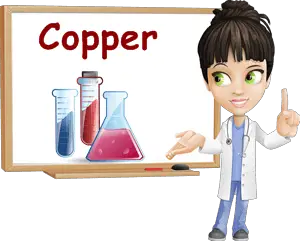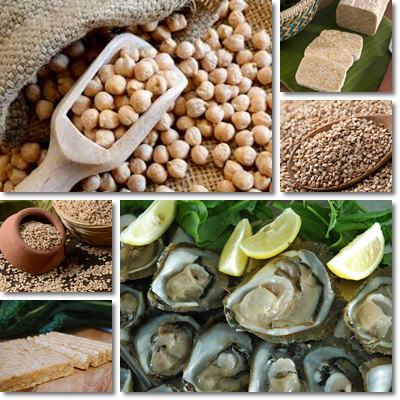Being a trace mineral, copper is pivotal for the good functioning of the human body. We require very little amounts of the mineral to deliver crucial physiological functions on which life itself relies. Fish, giblets, nuts, legumes such as beans, peas, chickpeas or lentils, cereals, vegetables and fruits all provide good amounts of the mineral. Most of the copper reserves in our body are stored in the liver, but traces can be found throughout the rest of the body as well.
Our metabolism, eyes and hair pigment, thyroid gland are dependent on a good copper intake.
In addition to dietary sources, copper is available as a food supplement and can be found in most multivitamin complexes. As a food supplement of its own, it is available in pill form, as a topical gel, even powder or as a ‘bracelet’.
Despite claims, the health benefits of copper bracelets are not yet confirmed. Copper cooking pots, water pipes and anything copper that transports or holds food or water also inadvertently adds to out daily intake of the mineral.

Copper from both dietary sources and food supplements boasts numerous health benefits like supporting the growth process, ensuring the proper use of iron, participating in enzymatic reactions, in the formation of connective tissue, slowing down the aging process, aiding in energy production and promoting healthy hair and eyes. Overall, its activity is essential for keeping us in good health. Promoting normal metabolic processes in association with amino acids and vitamins is another very important function of the mineral.
Do we make copper?
Because it cannot be produced by the human body, copper needs to be supplied by diet or food supplements in case of a more severe deficiency. Considering that it is the third most widespread mineral in the body, it is vital that we meet our daily requirements.
Where is copper stored in the body?
We store copper in bones, muscles and the liver, the latter being responsible for sending the mineral out in the blood to where it’s needed. We also get the mineral from other sources than food and supplements. Copper pots and pans as well as copper pipes for transporting drinking water can add trace amounts of the mineral to our diet as well. However, a varied, balanced diet is considered enough to supply us with all the copper we need and prevent potential deficiencies.
Copper deficiency symptoms
Copper deficiency can manifest itself through a variety of symptoms such as premature hair graying, low body temperature, enlarged veins, low white blood cell count, frequent infections and poor immunity response to infectious agents, irregular heartbeat, brittle bones, osteoporosis, birth defects and thyroid problems.

What are the benefits of Copper?
Despite not receiving as much attention as calcium, zinc or iron, the mineral is pivotal for keeping in good health. Here is how copper can help with various health issues:
Pigmentation of hair and eyes
Copper is an essential element of the natural pigment called melanin, responsible for skin, hair and eyes color. Melanin is produced by melanocytes only in the presence of copper. A copper deficit will lead to premature hair graying. This can be avoided or delayed either by consuming copper-rich foods or by taking multivitamin complexes.
Also, with old age comes an interesting feature: our eyes may start to discolor. A premature installment of this process is a sign of premature aging and it can be delayed or slowed down as a result of a healthy diet, rich in vitamins, minerals and antioxidants (especially copper).
Antibacterial properties
Scientific studies suggest that copper can inhibit and even destroy the growth of dangerous bacteria such as E. coli. According to a study conducted by Professor Bill Keevil, Head of the Microbiology Group and Director of the Environmental Healthcare Unit at the University of Southampton, several strains of the bacteria have died within minutes of their exposure to copper.
Benefits for the thyroid gland
It would appear that copper supports the activity of the thyroid gland (Zinc, copper, manganese, and selenium metabolism in thyroid disease). In addition to this, more than 50 different enzymes involved in various biological reactions within our body rely on copper to operate properly.
Conclusion
Copper, just like every other essential nutrient, lives in a fragile balance with other vitamins and dietary minerals. Ensuring an adequate intake of every nutrient, copper included, helps our body make better use of other vitamins and minerals, contributing to better health. Too much or too little of any nutrient may have our body absorb either more or less of others, disrupting the fragile balance that keeps us as healthy as can be.
